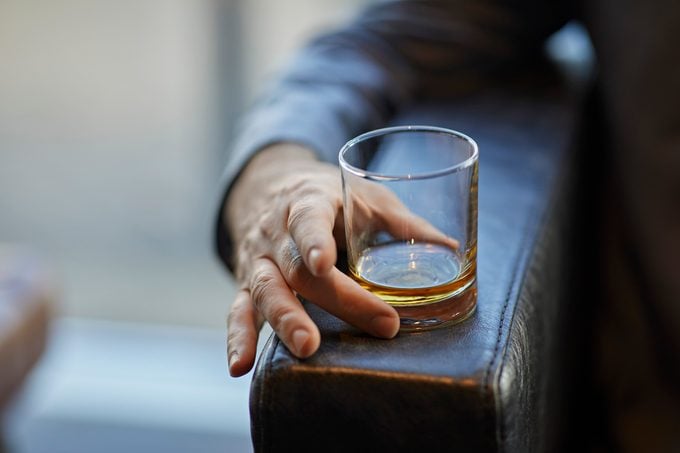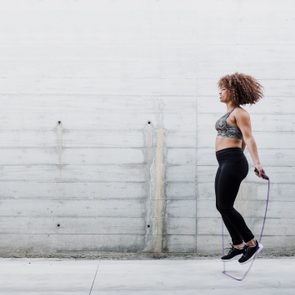Alcohol and High Blood Pressure: What You Should Know
Updated: Oct. 10, 2022
Drinking too much alcohol can result in high blood pressure and other dangerous heart problems over time. Experts explain why and share tips on how to manage your blood pressure.
Does alcohol cause high blood pressure?
With Sober October, Dry January, and the increasing availability of alcohol-free spirits, many people are taking breaks from drinking to boost their physical and mental health. And improved blood pressure may be one of those benefits.
Untreated high blood pressure is a major risk factor for heart attack and stroke. Quitting alcohol or drinking moderately may help keep your numbers where they need to be, according to the American Heart Association (AHA).
Systolic blood pressure, the upper number in a blood pressure measurement, is the force your blood is exerting against your artery walls when your heart is beating. Diastolic blood pressure, the lower number, is the pressure when your heart is at rest. A blood pressure of less than 120/80 mm Hg is considered normal. High blood pressure is 130/80 mm Hg or higher.
Here’s what you need to know about the link between alcohol and blood pressure, including alcohol and the risk of high blood pressure, plus tips for how to manage your numbers.
Alcohol and blood pressure: What’s the connection?
Exactly how alcohol raises blood pressure isn’t fully understood, but these beverages can be loaded with calories and sugar—and in beer’s case, there can be lots of salt too, says Guy L. Mintz, MD, director of cardiovascular health and lipidology at Northwell Health’s Sandra Atlas Bass Heart Hospital in Manhasset, New York.
“This can cause weight gain over time, and obesity increases your likelihood of developing high blood pressure,” he says.
Increase heart rate
Alcohol also increases your heart rate and can lead to “holiday heart syndrome,” or irregular heartbeats, namely atrial fibrillation (or AFib), in the 24 to 48 hours after you imbibe, Dr. Mintz says. This phenomenon was first noticed in emergency rooms after New Year’s Eve, a night known for excessive alcohol consumption. AFib is associated with five times greater risk for stroke, the AHA points out. Blood pressure and heart rate often travel together, Dr. Mintz says. (This is what it means when your heart skips a beat.)
Spike in blood pressure
There are other ways alcohol may affect blood pressure, Dr. Mintz says. Alcohol may make you fall asleep quickly, but you won’t stay that way for long, and even one night of bad sleep may result in a spike in blood pressure that night and the following day, according to a 2019 study in Psychosomatic Medicine.
Increase and decrease in blood pressure
Dehydration may cause your blood pressure to rise or fall, and alcohol tends to lead to dehydration, says Evan Appelbaum, MD, a cardiologist at Men’s Health Boston, a Harvard-affiliated multi-specialty practice.
And that’s not all. When you drink alcohol, it may lower your inhibitions so you not only eat more but also may make less healthy choices, Dr. Applebaum says. This can lead to weight gain, which further increases the risk of high blood pressure and heart disease.

Binge drinking and blood pressure
The more alcohol you drink, the greater your risk for high blood pressure and other heart-related issues. “Chronic excessive alcohol use, or more than three drinks during a day, may contribute to high blood pressure,” says Dr. Appelbaum. This is concerning as two in three adult drinkers report consuming more than moderate amounts of alcohol at least once a month, the Centers for Disease Control and Prevention (CDC) reports.
A review of 32 studies involving 767 people in the July 2020 Cochrane Database of Systematic Reviews found that one glass of alcohol had little to no effect on blood pressure, while drinking two or more standard drinks decreased blood pressure for up to 12 hours. After that, however, blood pressure starts to rise, the study finds.
The good news is that the effects of occasional drinking on blood pressure are likely reversible. However, regular drinking of moderate to high amounts of alcohol can permanently affect your heart rate and impair your baroreceptor sensitivity, which can result in permanent high blood pressure. The baroreceptor reflex helps your body maintain normal blood pressure levels.
This may be why binge drinkers are more likely to have high blood pressure than their teetotaling counterparts, a 2018 study in the Journal of American Heart Association suggests.
(Learn more about your body during binge drinking.)
Moderate drinking and blood pressure
Studies are mixed when it comes to any potential heart health benefits of moderate alcohol consumption. It’s all about moderation when it comes to keeping your heart healthy and blood pressure in check, Dr. Appelbaum says. One standard drink is about 14 grams of alcohol, 12 ounces of regular beer, 5 ounces of wine, or 1.5 ounces of distilled spirits, notes the National Institute on Alcohol Abuse and Alcoholism.
Moderating means no more than one drink a day for women and no more than two drinks for men. (Follow these tips to limit alcohol intake.)
Of course, there are some people who shouldn’t drink any alcohol at all, including pregnant women, those younger than 21, individuals who have certain medical conditions or are taking certain medications that can interact with alcohol, and those who are recovering alcoholics, according to the CDC.
Managing high blood pressure
It’s not just excessive alcohol use that raises blood pressure. Eating an unhealthy, high-salt diet, not getting regular exercise, stress, and smoking can also play a role in high blood pressure.
Getting your numbers into the normal range and keeping them there involves a multi-pronged approach that aims to modify all of these factors, Dr. Appelbaum says.
Healthy eating habits
Many heart doctors recommend the Dietary Approaches to Stop Hypertension (DASH) eating plan, which is designed to lower high blood pressure. In addition to limiting sodium, DASH calls for less red meat and less added sugar. (Watch out for these high blood pressure foods in your diet.)
Aerobic exercise
Aerobic activity is the best exercise for blood pressure, and the AHA suggests aiming for at least 150 minutes of moderate aerobic physical activity a week. Since stress can have direct and indirect effects on blood pressure control, finding something that helps you take the edge off, such as deep breathing or mindfulness, and doing it every day can have positive effects on your health. (Learn more about the link between stress and high blood pressure.)
Quit smoking
If you haven’t already, quit smoking now, Dr. Appelbaum says. (Don’t miss what you should know about marijuana and high blood pressure too.)
Blood pressure meds
“You may still need blood-pressure-lowering medication depending on your other risk factors for heart disease and how high your numbers are,” Dr. Appelbaum says. (Here are 31 things you can do to avoid high blood pressure.)
The last word
Drinking alcohol in moderation is unlikely to have harmful effects on your blood pressure, but overdoing it can cause your pressure to rise. If your numbers are higher than they should be, eating a healthy diet, exercising, and drinking only in moderation can help get them back in the normal range.
Next, learn about the health dangers of even slightly high blood pressure.




















